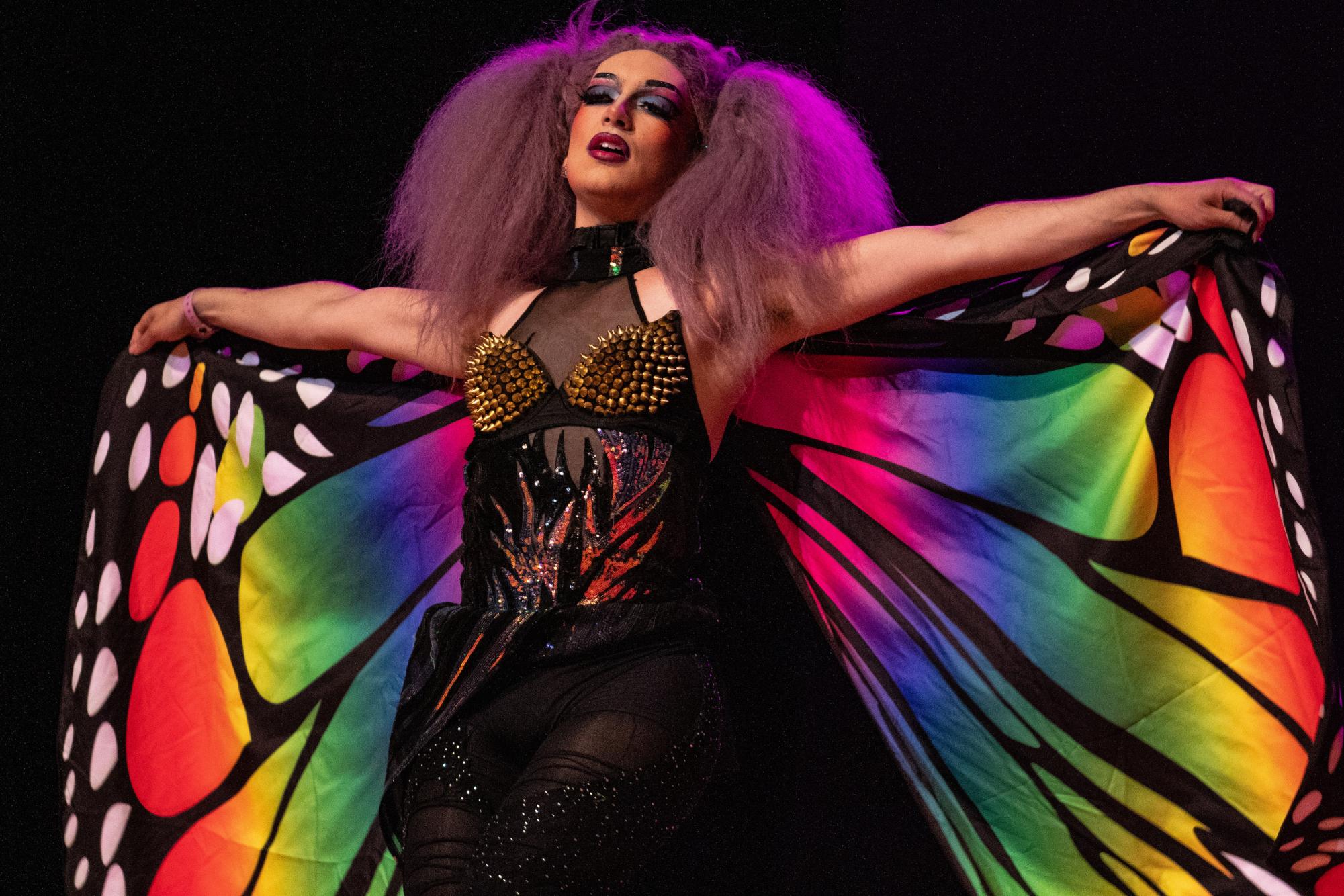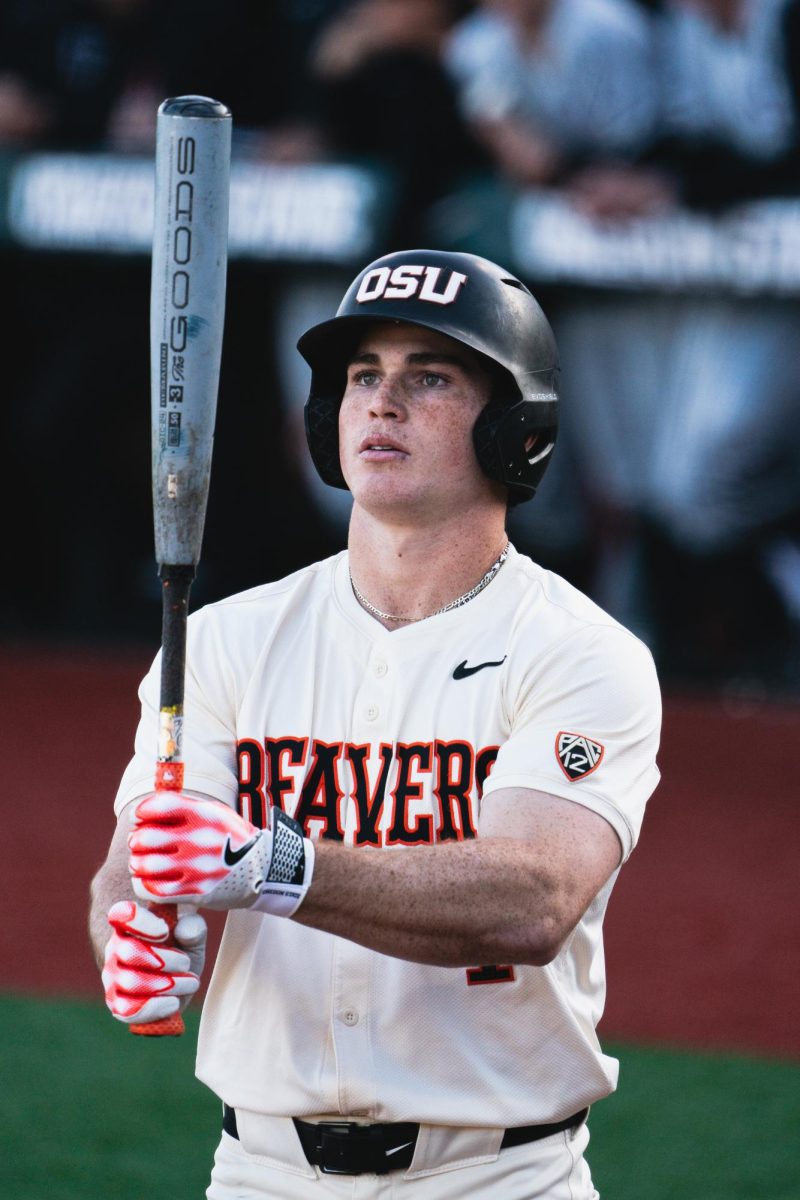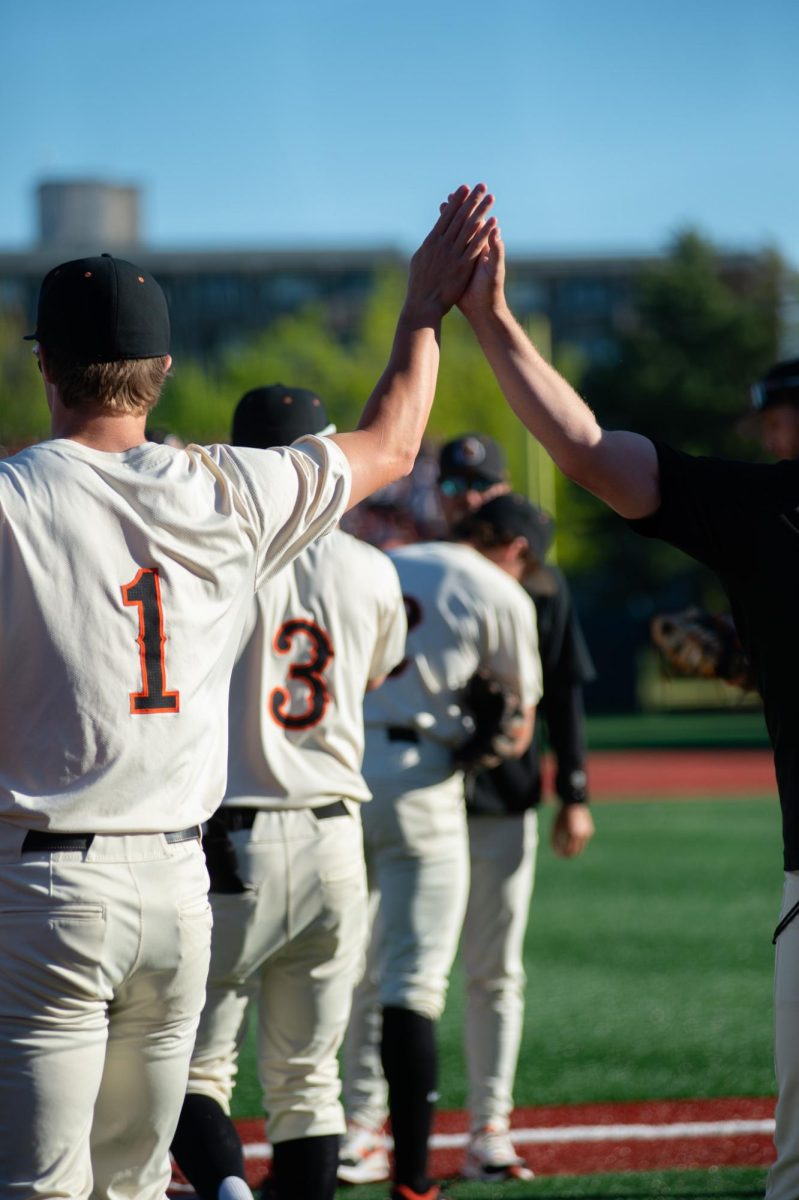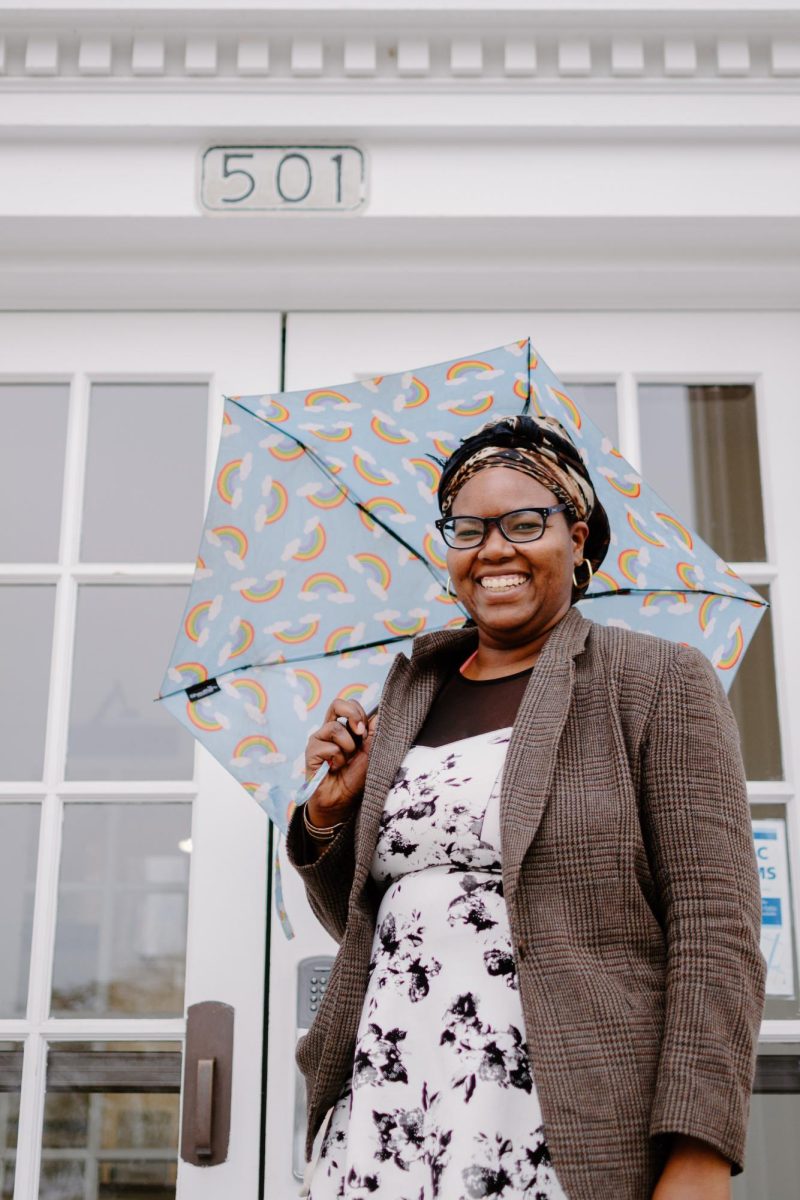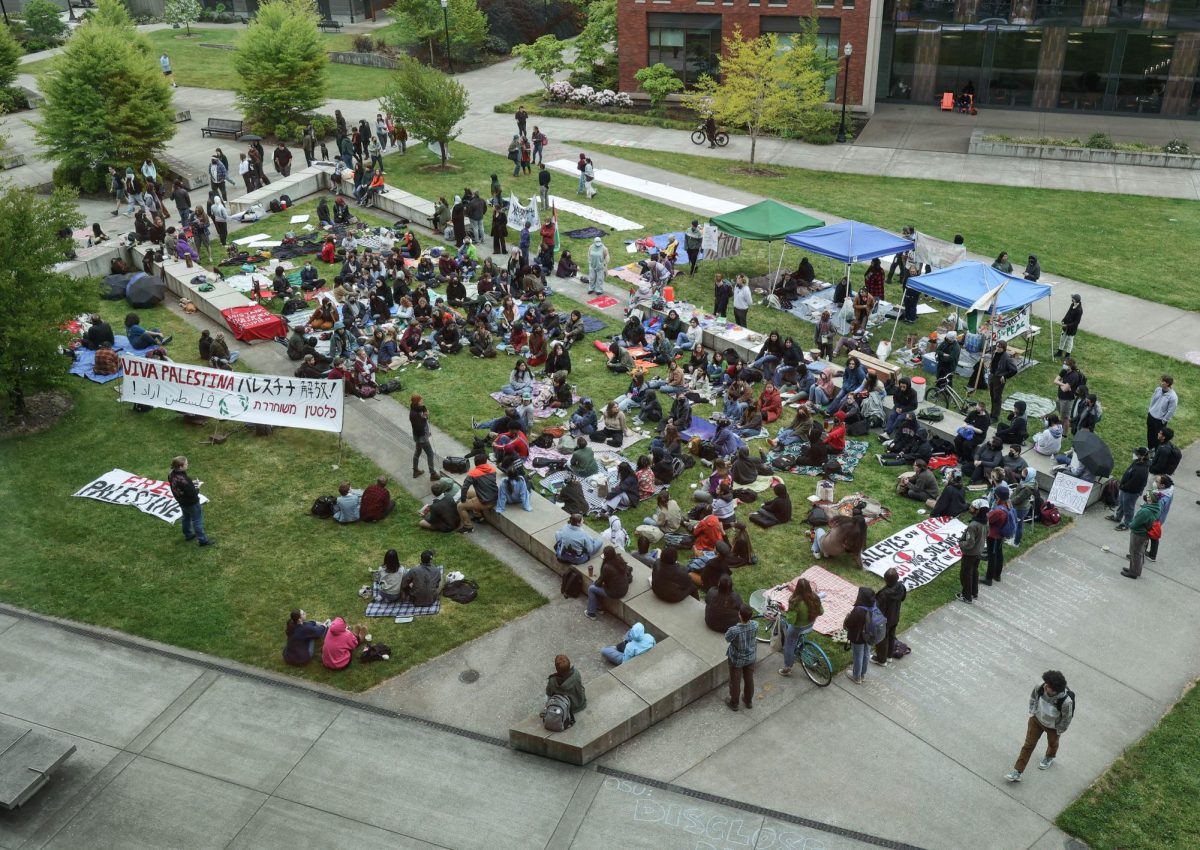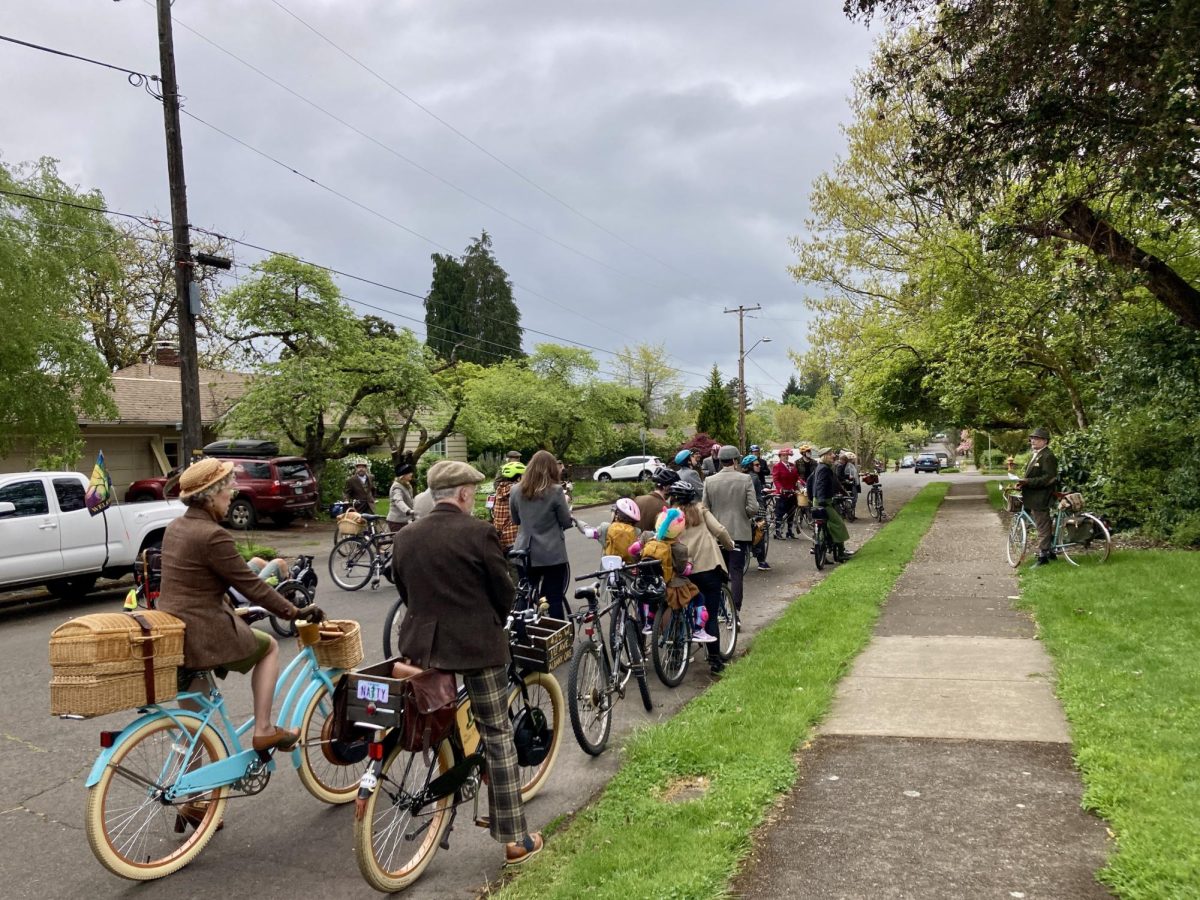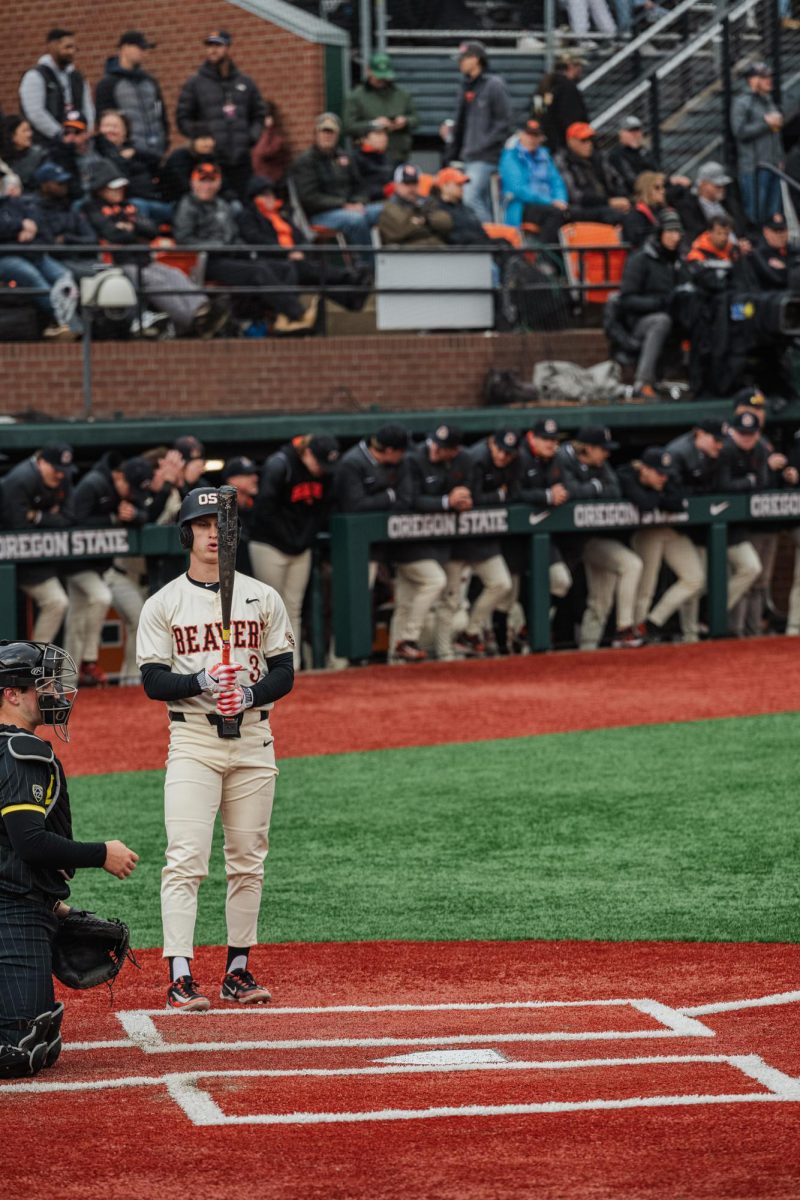In the heart of Corvallis, or “Queervallis” as it is known in the Haus of Dharma, stands a testament to self-reliance and solidarity. Despite the house’s appearance, it serves as a vital communal living and organizing space for queer individuals in the community.
Leading this initiative is Dharma Krishna Mirza, affectionately known as Dharma, who has been dedicated to community building and mutual aid for years. Since settling in Corvallis in 2016, Dharma has deepened her roots in the community, offering essential care and support through various avenues.
“As a trans woman of color, we are some of the most affected people by transphobia, homophobia, misogyny and racism,” Mirza said.
Haus of Dharma helps the queer community of Corvallis by feeding people that would stop by their residence and advocating in the community for LGBTQ+ issues, like the need for housing and resources to keep youth out of danger.
These issues hit close to home for Mirza, as she is a queer woman of color who also experienced being unhoused at one point and was taken in by other drag mothers during this period of her life.
Mirza performs under the drag name of “Frisky the Transgender Reindeer” when putting on drag shows and community benefits to help raise money and provide awareness for ongoing issues in the queer community.
Mutual aid work, as defined by Mirza for Haus of Dharma, is performing liberatory work and teaching harm reduction strategies.
In the community learning to survive is different because of the vulnerability that comes with being a queer person with other intersecting identities.
“What comes with this community is survival strategies. A lot of what we do is building kinship, and helping people survive the terrors of living in this ethno-nationalist, capitalist state.”
The drag scene also provided Mirza with monetary support through the established mutual aid framing. Mirza was able to survive bouts of being homeless by performing in drag and the tips she would receive would contribute to rent.
The Haus of Dharma was started for the community based on two frameworks that would intersect with others as time went on.
One was to create a space for queer folks, specifically for drag performing and putting on performances.
The second was to set up a base to provide social services for folks in the community because “one always begat the other,” Mirza said.
This foundation was based on frameworks of the past that have stayed in practice in the drag community.
“I knew from studying our history that drag communities or drug spaces were always places where people went for resources. Drag performers and queer organizers often use drag as an organizing framework to provide access to harm reduction resources,” Mirza said.
This opens up Haus of Dharma’s approach to mutual aid and how collective organizing is done within their community.
The three main values in the house are to align, empower and serve. The alignment speaks to how they arrived at their name of Dharma. The word is South Asian and it implies religious and philosophical meaning.
Mirza said it is being in line with oneself. Through means of being aligned with one’s cosmic way of being in the universe and performing your responsibilities to help others.
“Drag for me is my Dharma,” she said.
That being the basis of Mirza’s work she teaches about prison abolition, anti-police organizing and harm reduction and that’s how they teach the community about survival.
Mirza has felt the pressure of having her mutual aid and community work questioned. She openly testified about decriminalizing drugs when Ballot Measure 110 was introduced.
Drug Addiction Treatment and Recovery Act, Ballot Measure 110, which “requires the formation of a grant program to fund Addiction Recovery Centers and an Oversight and Accountability Council to determine how the grant funds will be distributed.”
“I talked openly about being a sex worker who uses drugs, it puts my mutual aid work under the microscope too, and that sucks because … people will try to work it against you,” Mirza said.
Still, that hasn’t stopped Mirza from carrying out important work for the community and herself.
Mirza is currently a Ph.D. in the Women, Gender and Sexuality Studies program at OSU on a Fulbright scholarship and a distinguished academic with a master’s degree in women’s sexuality studies and ethnic studies.
Another accomplishment is speaking about the power of drag to change the world through the representation of queer, transgender Muslims and what drag has done for the community as far as disrupting the scripts about what drag looks like, and transnational feminist work being central to drag.
Mirza’s greatest accomplishment though is how she has provided a home and a found family for the most vulnerable in the community.
“I started just wanting to empower people, right,” Mirza said. “But these people need identity, they need community. Some of our family members don’t have an (immediate) family, they don’t have anyone to go to and this becomes their family.”
Mirza also spoke about the time she was doing a drag performance in 2015 at OSU. After the performance, she was approached by an audience member who spoke about having suicidal ideations.
However, they were so moved by Mirza’s messaging and performance that they decided not to go through with it.
Due to the work Mirza has done through mutual aid and community outreach this student was able to find purpose and is around today married and living in their truth.
“That’s the result of this work, people are still here, and that’s powerful,” Mirza said.
Haus of Dharma posts on Instagram and Facebook social media about where they will be performing and invites members of the community to come out and support.















































































































